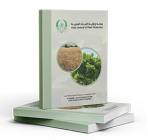A.T. Eesa* and M.T.M. Ali
Faculty of Agriculture, Karbalaa University, Iraq.
*Email address of the corresponding author: [email protected]
Received: 9/6/2024; Accepted: 23/8/2024
A Regional Scientific Journal Published Four Times a Year by the Arab Society for Plant Protection
A.T. Eesa* and M.T.M. Ali
Faculty of Agriculture, Karbalaa University, Iraq.
*Email address of the corresponding author: [email protected]
Received: 9/6/2024; Accepted: 23/8/2024
A laboratory study was conducted to evaluate the efficiency of some bio-pesticides Oxymatrine, Tondexir, Palizin and cold and hot aqueous extracts of Moringa oleifera leaves against the second larval stage and adult stage of the red rusty flour beetle (Herbst) Tribolium castaneum under laboratory conditions. The results obtained indicated that Oxymatrine at a concentration of 2.5 ml/L produced the highest mortality rate of the adult stage and the second larval stage at 76.70 and 85.30%, respectively, compared to Tondexir and Palizin at a concentration of 4 ml/L, which achieved average mortality rates of 31.3 and 80.7%; 25.33 and 77.33%, respectively, 9 days after treatment. Results obtained showed that the hot water extract of M. oleifera leaves was more effective at a concentration of 5000 ppm, and achieved the highest mortality rate of the adult stage of 53.33%, 9 days after treatment, compared to the cold water extract, which produced a mortality rate of 43.33% at the same concentration and after the same period of time. Likewise, the hot water extract also outperformed the cold water extract in causing the highest mortality rate of the second larval stage at the same previous concentration, reaching 100 and 86.7%, respectively, 9 days after treatment.
Tribolium castaneum, Oxymatrine, Palizin, Tondexir, Moringa oleifera.

